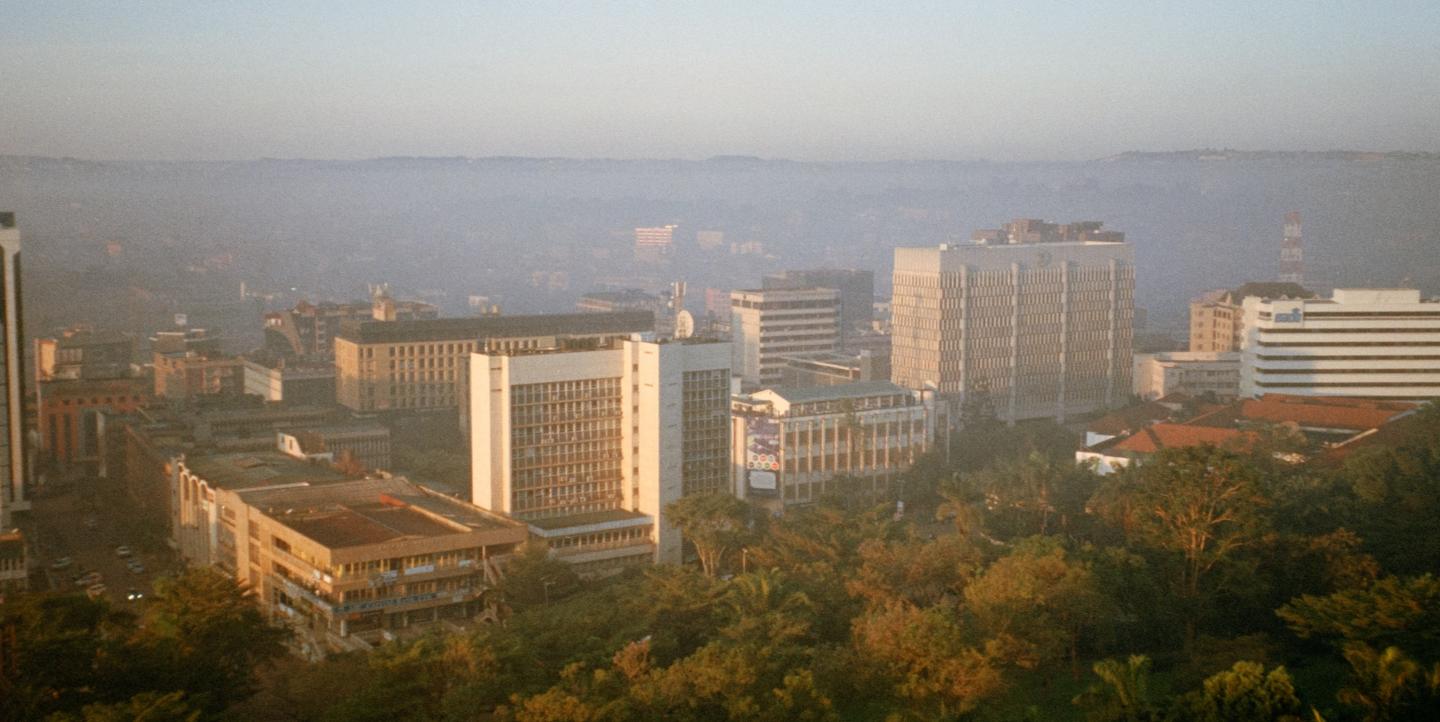Two years ago, Ugandan investigative reporter Solomon Serwanjja partnered with BBC Africa Eye on the investigation, Stealing From the Sick. Published as a documentary film, the project uncovered the alleged trading of government-regulated pharmaceuticals on the black market in Uganda. It also exposed the plight of Ugandans who were forced to use private hospitals because of frequent drug shortages at government-run hospitals.
As the team worked on the documentary, however, Ugandan authorities accused Serwanjja and his colleagues of stealing restricted medicines. Police raided his home and arrested his wife. They also took three BBC journalists into custody. The BBC stepped in to fight the charges, and ultimately Serwanjja’s wife and the reporters were released.
Serwanjja proceeded to complete his investigation. As he put the finishing touches on the documentary, however, one question ran through his mind: How would he have conducted the investigation and survived the attack from Ugandan authorities if the BBC did not provide resources and support?
Before collaborating with the BBC, he had attempted to work with colleagues from other local media outlets in Uganda on stories he felt needed more input than his team at Ugandan TV station NBS could offer. He was unsuccessful, as they could not provide him with the support he needed for his reporting.
“I thought of what would happen to investigative journalism in Africa if BBC Africa Eye and other big boys close,” he said. “Al Jazeera had Africa Investigates but it was shut down.”
Serwanjja pondered over the question with Raymond Mujuni, an investigative journalist and editor with NTV Uganda. Together, they discussed establishing a neutral space to allow journalists from different outlets to collaborate on impactful investigative reporting projects.
In January 2020, they launched the African Institute for Investigative Journalism (AIIJ). The same year, they applied for and received a grant from the Open Society Initiative for Eastern Africa, which helped them secure office space in Uganda’s capital of Kampala.
“We wanted to prove to investigative journalists that despite inherent challenges, they could still do investigative journalism without fear or favor because it will go a long way in creating a better Africa,” he said.
[Read more: These two women spearheaded gender-sensitive reporting in Namibia]
Serwanjja is the executive director of AIIJ, and Mujuni serves as his deputy. Today, the Institute is present in Uganda, Kenya and South Africa, and plans are underway for a regional West Africa office in Nigeria.
AIIJ has implemented robust programming, keeping in mind the many factors that go into producing hard-hitting investigations.
Investigative reporting skills
The Institute has implemented fellowship projects, hosted regional webinars and conducted training for investigative journalists. In one of its webinars, experienced investigative journalists from across Africa, including Ghanaian investigative journalist, Anas Aremeyaw Anas and Kenyan investigative journalist John Allan Namu came together to discuss the state of investigative journalism in Africa and how to move forward.
Through its programs, the Institute trains journalists and news outlets on new tools and techniques for investigative reporting. Serwanjja said he intends to travel the continent with his team to train journalists on these critical skills.
“We want to train investigative journalists on how to use open sources and data to support their work,” he said. “We try to tap into the experiences of the big boys who have excelled so we can do it ourselves.”
[Read more: Digital journalists in Zimbabwe offer an alternative to polarized media]
Collaboration
The Institute nurtures connections among investigative reporters in Africa through its collaborative reporting program. “Collaboration is the future of investigative journalism in Africa. Especially cross-border investigations,” said Serwanjja.
Funding
Reporting investigative stories can often be expensive. Through its grants program, the Institute also funds the work of media practitioners, researchers and journalists.
“Good stories that would have had a huge impact have died because there were no funds to write them,” said Serwanjja. “We don’t only give you money. We also work with you to ensure that the goal is achieved.”
Legal support
AIIJ provides legal support for journalists in case they face litigation for the stories — support other media outlets might not readily offer.
Security
One of AIIJ’s long-term goals is to acquire 20 hectares of land in Uganda where it will build safe homes to accommodate investigative journalists from across Africa and their families when they are threatened because of their work.
As Serwanjja notes: “Safety for investigative journalists is very key at the Institute.”
Photo by Drew Willson on Unsplash.

